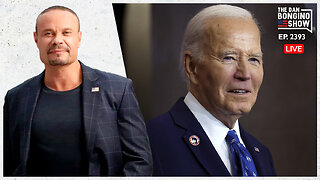Premium Only Content

Democracy Dies When Media Lies. Without a free and unbiased media, our democracy will not survive.
Democracy Dies When Media Lies.
Words/music original. Copyright 2023. All Rights Reserved.
Video is Newspaper Story, which is in the public domain.
Thumbnail photo from the Library of Congress and is in the public domain.
Democracy Dies When Media Lies
Democracy Dies When Media Lies
It's often crap they sell
Chaos ensues and we all lose
When there's no truth to tell
Cronkite's rolling in his grave
Sounding the death knell
Democracy Dies When Media Lies
It's time we raise some hell
Democracy Dies When Media Lies
It's time we raise some hell
The media plays a pivotal role in shaping public opinion, disseminating information, and holding those in power accountable. However, like any human endeavor, it is not immune to mistakes, bias, and, at times, deliberate deception.
There are many examples throughout modern history where the media lied to the people, including weapons of mass destruction in Iraq, Brian William's false Iraq helicopter story, the Rolling Stone magazine UVA rape story, Jayson Blair's plagiarism scandal, the Covington Catholic High School incident, and many more.
The examples of media deception outlined above serve as reminders of the inherent challenges faced by journalists and media organizations. While these instances do not represent the entirety of the media landscape, they underscore the importance of media literacy and critical thinking for consumers of news. It is essential to question, fact-check, and seek diverse sources of information to gain a more comprehensive understanding of complex issues.
Journalism plays a crucial role in holding power to account and informing the public, but it is not immune to error or bias. In a world of rapidly evolving media platforms and information dissemination, the responsibility for discerning truth from deception increasingly falls on the shoulders of the audience. Media literacy education, fact-checking, and a commitment to responsible journalism are essential components of a well-informed society. Only by acknowledging and learning from the mistakes and instances of deception can we hope to preserve the integrity of the media as a pillar of democracy.
Yellow Journalism: A Legacy of Sensationalism in Media
Yellow journalism is a term used to describe a type of sensationalistic and often irresponsible journalism that emerged in the late 19th century in the United States. It is characterized by exaggerated headlines, emotional language, and the prioritization of shocking stories over accuracy. The term "yellow journalism" itself is believed to have been coined during the circulation war between the New York World and the New York Journal in the 1890s, where both newspapers used sensational tactics to boost sales.
One of the most infamous instances of yellow journalism was the coverage leading up to the Spanish-American War in 1898. Newspapers like the New York Journal and the New York World used exaggerated stories of Spanish atrocities in Cuba to fuel anti-Spanish sentiment and boost their circulation. While this sensationalistic reporting helped push the U.S. into war, it also raised concerns about the ethics and responsibility of the press.
Yellow journalism has left a lasting legacy on the media landscape. While modern journalism strives for accuracy and ethical reporting, elements of sensationalism and clickbait headlines can still be found in some news outlets. The challenge today is to balance the need for attracting readers or viewers with responsible and factual reporting, ensuring that the lessons of yellow journalism serve as a reminder of the importance of journalistic integrity and ethics in the digital age.
Punk Rock
Punk rock, a rebellious and influential music genre, emerged in the mid-1970s. Originating in the United States and the United Kingdom, it was a response to the perceived pretentiousness of mainstream rock music. Bands like The Ramones, The Sex Pistols, and The Clash pioneered punk with short, aggressive songs, DIY ethos, and anti-establishment lyrics. Punk rock quickly became a symbol of youth rebellion and counter-culture, sparking a vibrant subculture with distinctive fashion and attitudes. It evolved over the years into various sub-genres, but its raw energy and commitment to authenticity remain central to its enduring legacy, shaping alternative music and culture worldwide.
-
 1:42:21
1:42:21
The Quartering
9 hours agoTrump To INVADE Mexico, Take Back Panama Canal Too! NYC Human Torch & Matt Gaetz Report Drops!
88.9K89 -
 2:23:15
2:23:15
Nerdrotic
9 hours ago $10.10 earnedA Very Merry Christmas | FNT Square Up - Nerdrotic Nooner 453
67.4K6 -
 1:14:05
1:14:05
Tucker Carlson
8 hours ago“I’ll Win With or Without You,” Teamsters Union President Reveals Kamala Harris’s Famous Last Words
150K304 -
 1:58:31
1:58:31
The Dilley Show
8 hours ago $30.88 earnedTrump Conquering Western Hemisphere? w/Author Brenden Dilley 12/23/2024
125K32 -
 1:09:59
1:09:59
Geeks + Gamers
9 hours agoSonic 3 DESTROYS Mufasa And Disney, Naughty Dog Actress SLAMS Gamers Over Intergalactic
83.7K20 -
 51:59
51:59
The Dan Bongino Show
10 hours agoDemocrat Donor Admits The Scary Truth (Ep. 2393) - 12/23/2024
807K2.68K -
 2:32:15
2:32:15
Matt Kohrs
21 hours agoRumble CEO Chris Pavlovski Talks $775M Tether Partnership || The MK Show
121K31 -
 28:23
28:23
Dave Portnoy
21 hours agoDavey Day Trader Presented by Kraken - December 23, 2024
155K42 -
 59:29
59:29
BonginoReport
12 hours agoTrump, Murder Plots, and the Christmas Miracle: Evita + Jack Posobiec (Ep.110) - 12/23/2024
161K131 -
 2:59:14
2:59:14
Wendy Bell Radio
15 hours agoNothing To See Here
129K75